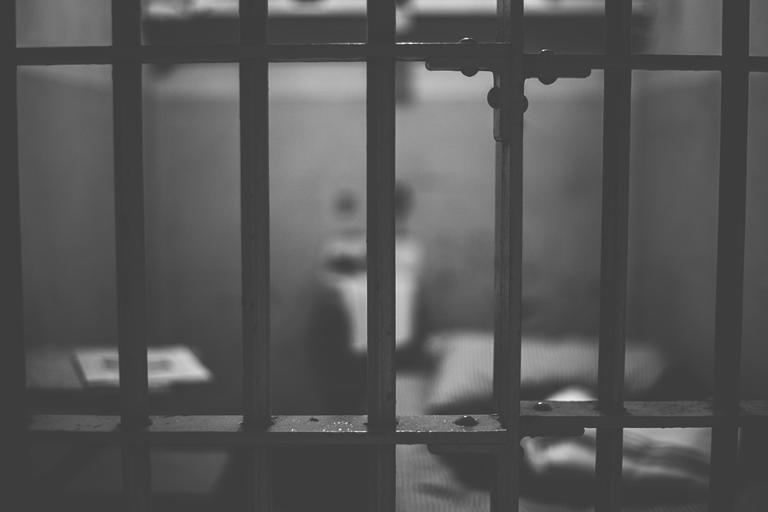Hateful Emails Target Hispanic LGBTQ+ Communities Amid Racism Concerns
Targeting Hate: Racism and the Assault on Hispanic LGBTQ+ Communities
In a world that’s supposed to be progressing towards acceptance and unity, it’s disheartening to see that hateful emails targeting Hispanic LGBTQ+ communities are making headlines. Discrimination and bigotry are as relevant today as they ever were, especially when certain marginalized groups are bombarded with negativity fueled by racism. So why does this matter? How does it affect individuals and communities? Let’s dive into the complexities of this issue.
The Roots of Hate: Understanding the Underlying Issues
Before we get into the nitty-gritty of hateful communications, let’s take a step back and examine what breeds such hostility. Hate often stems from fear or misunderstanding. People fear what they do not know. This is especially true regarding race and sexual orientation. When one group perceives another as a threat or as “other,” that’s when hate can bubble to the surface.
The Intersection of Racism and LGBTQ+ Identity
Racism doesn’t just impact one’s ethnicity; it spills over into various aspects of life, including sexual orientation. For many in the Hispanic LGBTQ+ community, the intersection of these two identities can create a unique set of challenges. Imagine trying to navigate a world that seems set against you from multiple fronts. It’s like sailing a ship in stormy seas—each wave representing societal challenges crashing against you.
It’s crucial to understand that, according to studies, people who identify as both Hispanic and LGBTQ+ often face discrimination from both their ethnic communities and the broader LGBTQ+ community. This double burden can lead to feelings of isolation and hopelessness. So when racist messages attack these individuals, they’re not just hateful; they represent a cumulative assault on two parts of their identity.
The Disturbing Trend of Hateful Emails
Recently, there has been a surge in hateful emails directed at Hispanic LGBTQ+ communities. These are not just random acts of cyberbullying; they’re rooted in deeply embedded prejudice. What’s even more troubling is the method these emails often use: anonymity. Behind screens, bigots feel empowered to unleash their venom without fear of repercussions. But the impact of these messages can be devastating.
The Emotional Toll: Impact on Mental Health
Now, let’s talk about the emotional fallout from these abusive messages. Receiving hateful emails can trigger a landslide of negative emotions—fear, anxiety, anger, and sadness. Just imagine checking your email and seeing a message that dehumanizes you. That’s no light experience; it’s akin to having a brick dropped on your heart. The weight of those words can take a toll, often leading to mental health issues like depression and anxiety disorders.
A study published in the American Journal of Public Health indicates that LGBTQ+ individuals already face higher rates of mental health challenges than their non-LGBTQ+ counterparts. When you pile on the layer of racism, that challenge becomes monumental. It’s not just about feeling attacked; it’s about feeling unheard and unloved in a world that can be cruel.
Community Response: Rallying Together Against Hate
Fortunately, communities don’t sit idly by when faced with such adversity. Many organizations are rising to the occasion, promoting messages of inclusivity and support. It’s essential to create safe spaces where individuals can come together to share their experiences and heal.
-
Support Groups: Safe zones are invaluable. Peer support allows individuals to articulate their fears and find solace in the shared experiences of others.
-
Awareness Campaigns: Initiatives aimed at educating the general public about the intersectionality of race and sexual orientation can help break down misunderstandings that lead to hatred.
-
Mental Health Resources: Organizations are stepping up to provide accessible mental health services tailored specifically for the Hispanic LGBTQ+ community.
It’s heartening to see these steps taken, but there’s still much work to be done. Creating significant societal change requires not only action but also empathy. After all, empathy is the antidote to hatred.
Social Media and Its Role in the Discussion
Social media plays a double-edged sword role in this narrative. On one hand, it can spread hate; on the other, it can amplify voices calling for change and support. Many individuals are turning to platforms like Instagram, TikTok, and Twitter to share their experiences and raise awareness about the issues facing Hispanic LGBTQ+ communities.
The Power of Hashtags
Hashtags can unite people across the globe. Campaigns that use targeted hashtags can gain traction quickly, drawing attention to the realities of discrimination. No longer are individuals simply voiceless victims; they’re empowered to tell their stories, share their truths, and find common ground through collective experiences.
The #HateHasNoHomeHere and #LGBTQ+ hashtags are prime examples of how social media can serve as a beacon of hope, even amidst unfortunate circumstances.
Seeking Justice: The Legal Front
Laws are supposed to protect individuals from hate crimes and discrimination, but enforcement can be spotty. For those who receive these hateful emails, knowing their options is crucial. Many states have laws that cover hate crimes, and organizations exist that advocate for these protections.
Reporting Abuse Online
Most email platforms and social media sites offer mechanisms to report hate speech and harassment. Encouraging victims to document their experiences and report them ensures a record exists, which could be pivotal if the harassment escalates. Legal recourse may sometimes be pursued, but often, the sheer act of reporting strengthens community awareness.
What to Do if You’re Affected
If you or someone you know is affected by hateful communications, here are some steps to take:
-
Save Evidence: Do not delete the messages. Screenshots can be vital for future actions.
-
Reach Out: Don’t suffer in silence. Talk to someone you trust about your experience.
-
Get Informed: Know your rights. Resources like the Human Rights Campaign provide information on how to protect yourself legally.
- Seek Support: Look for local or online support groups. You’re not alone, and sharing your story can be empowering.
Conclusion: A Call for Unity and Understanding
The rise of hateful emails targeting Hispanic LGBTQ+ communities highlights the continued need for societal change. Addressing these issues requires an inclusive dialogue focused on empathy, understanding, and support. By stepping back and recognizing our shared humanity, we can begin to dismantle the very foundations of hate.
Let’s be the change-makers. Whether it’s standing up against bigotry in our communities or extending a hand to someone in distress, every action counts. As we journey toward a world free from hate, remember: together, we can make a difference.
FAQs
Q1: What are the impacts of hate emails on mental health?
A1: Hate emails can lead to anxiety, depression, and a sense of isolation, significantly affecting one’s mental health.
Q2: How can communities support victims of hate?
A2: Communities can provide safe spaces, support groups, and mental health resources designed for those affected by hate.
Q3: What should I do if I receive a hate email?
A3: Save the evidence, report it on the platform, reach out for support, and consider legal options depending on the severity.
Q4: Are there legal protections for victims of hate speech?
A4: Yes, many states have laws against hate crimes and harassment, and organizations advocate for these protections.
Q5: How can social media help combat hate?
A5: Social media can amplify voices, raise awareness, and unite individuals through shared experiences, fostering community support.







